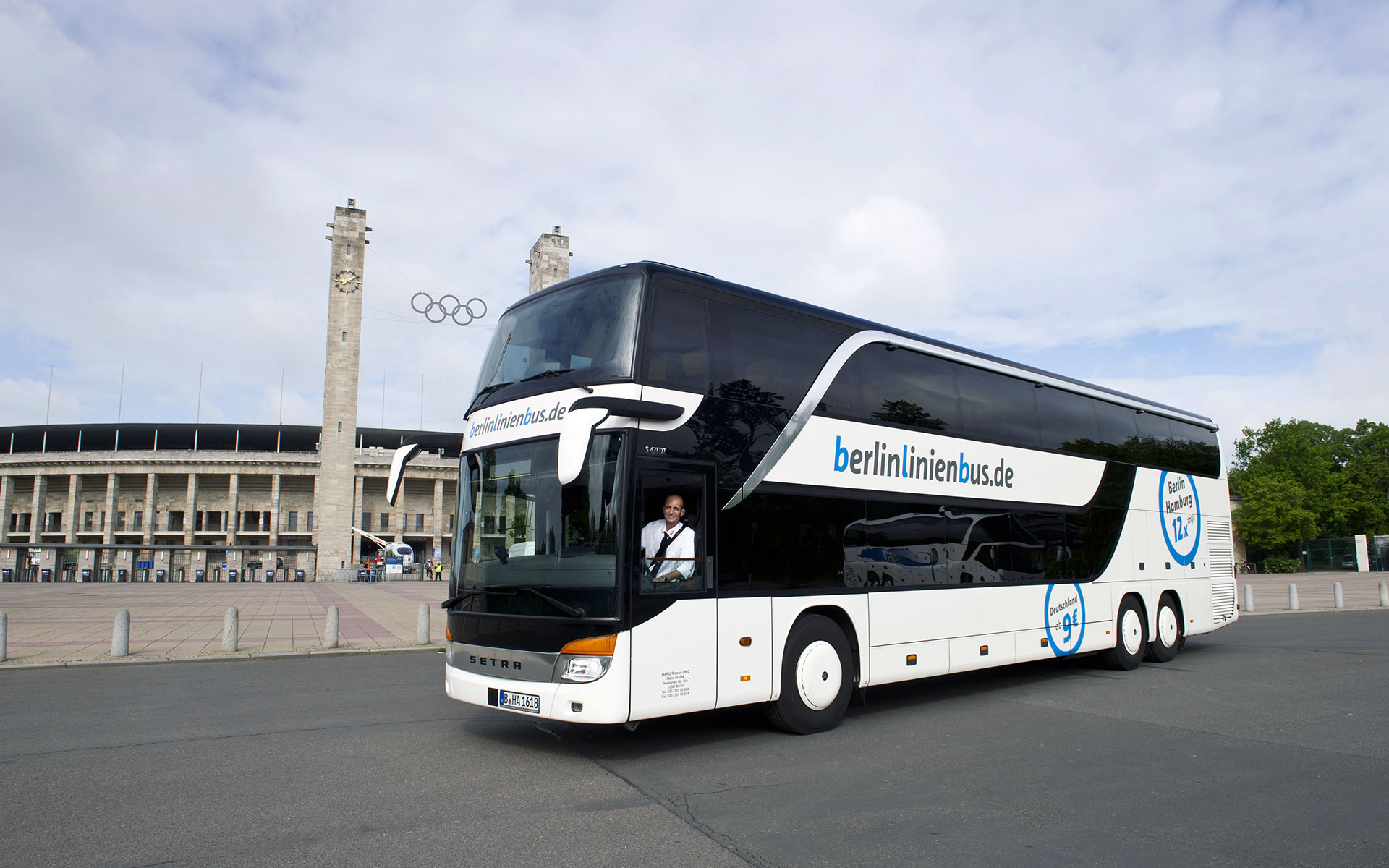Deutsche Bahn takes over Berlin Linien Bus
A Berlin Linien Bus outside the Olympic Stadium in Berlin (source: berlinlinienbus.de/photo © Martin Moritz).
The deregulation of the German market for long-distance coach travel, which came into effect in 2013, continues to have reverberations on travel in Germany. The dominant rail operator, Deutsche Bahn (DB), has found itself facing significant competition from new entrants to the coach market who offer very low fares undercutting DB's own promotional tariffs.
Long-distance coach travel was not totally unknown in the inner-German market before the regulatory reforms of 2013. The biggest player was Berlin Linien Bus (BLB), an interesting operation which dates back to the Cold War years when Germany was divided into different occupation sectors. The company offered many coach services between West Berlin and West Germany. The transit trains between West Germany and West Berlin were operated by the East German rail administration. Some passengers preferred to opt for the BLB coach rather than a DDR train.
It's no surprise that the West German national rail operator (the Bundesbahn as it was called in those days), barred from running trains to Berlin prior to German unification in 1990, took an interest in BLB. In recent years, DB's stake in BLB has grown – so much so that it has become the dominant partner in BLB. Now comes the news this week that DB has bought out its partners in BLB, so that the coach operation is now effectively a wholly owned subsidiary of DB.
Apart from its interest in BLB, DB has dipped its toe elsewhere in the long-distance coach market, with a growing network of routes running under the IC-Bus brand. There are presently 11 routes, all of them international, but there are cases where passengers can book a domestic leg wholly within Germany on one of these international routes. The network presently serves 24 cities outside Germany and about a dozen within the country.
DB's acquisition of BLB offers the prospect of the IC-Bus and BLB operations being merged, and makes DB a significant player in the growing market for inter-city coach transport. The BLB network is very much an inner-German one. BLB buses serve over 200 destination across the country. BLB also has some international routes, a number of which are in direct competition to IC-Bus routes.
Germany's Deutsche Bahn is thus slowly morphing from being a rail operator into being a mixed mode transport undertaking with a strong stake in coach travel as well as trains.




About The Authors
Nicky Gardner and Susanne Kries
Nicky and Susanne manage hidden europe, a Berlin-based editorial bureau that supplies text and images to media across Europe. From 2005 to 2023, they were the editors of hidden europe magazine. Nicky and Susanne are dedicated slow travellers and the authors of the book Europe by Rail: The Definitive Guide. The 18th edition of that book was published in October 2024. You'll find a list of outlets that sell the book on this website. Susanne and Nicky also provide consultancy to the rail industry on fares, routes and ticketing. Between them, they know a thing or two about rail APIs.